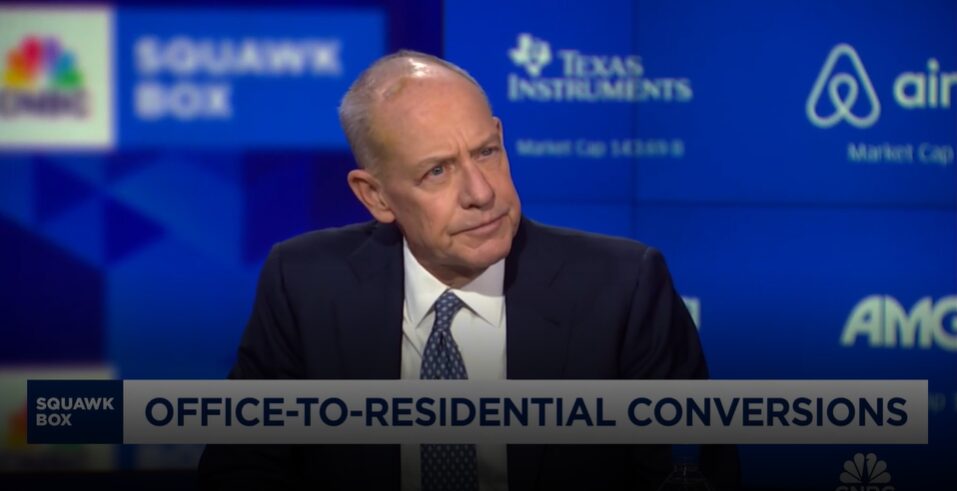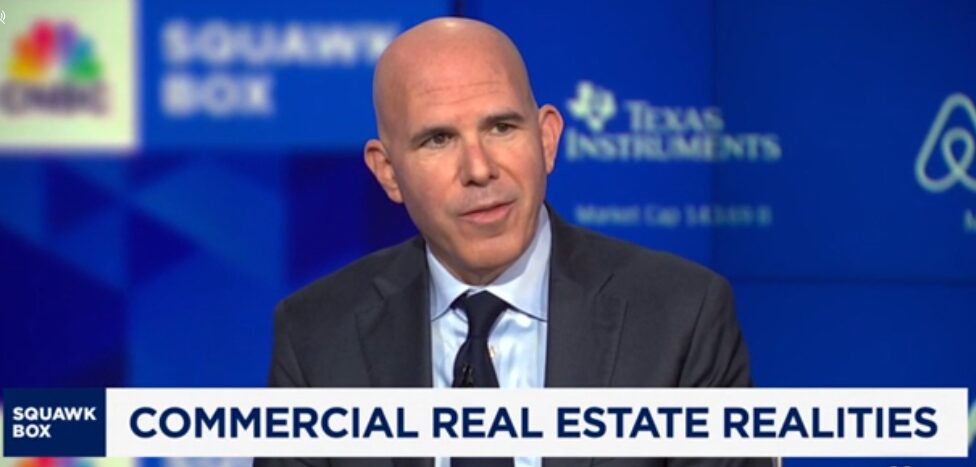The Roundtable’s policy news digest will resume publication on Friday, January 10, 2025
Recent issues of Roundtable Weekly can be searched by keyword here.
The Roundtable’s policy news digest will resume publication on Friday, January 10, 2025
Recent issues of Roundtable Weekly can be searched by keyword here.

Property conversions are emerging as a critical tool to revive underutilized assets and address market demands. By transforming outdated office spaces into housing and mixed-use developments, the industry is seizing an opportunity to adapt and thrive.
Industry Voices Capture Momentum

Community Success Stories

Navigating Challenges
The Roundtable urges federal policymakers to adopt incentives that support and promote these transformative local projects. These measures are vital to expanding access to affordable housing and meeting the nation’s growing demand.

Rep. French Hill (R-AR) was selected as the next chair of the powerful House Financial Services Committee, after securing the endorsement of the GOP steering committee in a closely watched race. (Axios, Dec. 12) (PoliticoPro, Dec.13)
Financial Policy Priorities
Trump Administration Eyes Changes to Financial Regulation

Looking Ahead
The House Republican Conference is anticipated to ratify the steering committee’s selection in the coming days.

Republicans are divided on how to approach a sweeping legislative package in 2025, as debates intensify between House and Senate GOP leaders considering whether to consolidate tax, border security, energy, and defense priorities into a single reconciliation bill or pursue a two-step approach. (TaxNotes, Dec. 12)
The Debate
View from the Senate
View from the House
Government Funding

Challenges Ahead
What’s Next

The text of the funding bill is anticipated to be released over the weekend or early next week, enabling both chambers to pass the measure before lawmakers adjourn until January.

On Tuesday, a coalition of national real estate associations, including The Real Estate Roundtable (RER), wrote to Congress urging support for the Renewing Opportunity in the American Dream to Housing Act (ROAD) to Housing Act, (S. 5027 | H.R. 990). Introduced by Senator Tim Scott (R-SC) and Representative French Hill (R-AR), this comprehensive legislation aims to make housing more affordable and widely available. (Letter, Dec. 10)
Addressing Housing Affordability
ROAD to Housing Act
The Roundtable and its coalition partners will continue to educate and collaborate with policymakers to advance the ROAD to Housing Act and ensure that housing supply and affordability remain top priorities.

Senate Republicans are mapping out an ambitious two-step reconciliation strategy for 2025, planning to first address defense, energy, and border security before tackling a tax package later in the year. The initial focus is to secure an early win that could help build momentum for the more complex task of extending the expiring provisions of the 2017 Tax Cuts and Jobs Act (TCJA). (Tax Notes, Dec. 4)
Why It Matters
Reconciliation Plan
View from Senate
What’s Next

The two-bill reconciliation strategy reflects Senate Republicans’ cautious approach to the legislative calendar. By securing an earlier, more straightforward win, the GOP hopes to gain the momentum needed to navigate a complex tax debate later in 2025.

Real Estate Roundtable President and CEO Jeffrey DeBoer has been recognized as one of the “Top Lobbyists” in Washington, D.C. for 2024, according to the prominent policy news publication, The Hill. This marks the seventh consecutive year that DeBoer has received this honor. (The Hill, Dec. 5)
DeBoer added, “This acknowledgment underscores the importance of the fact-based advocacy work we do to advance policies that foster solid real estate asset values, spur job opportunities, economic growth and strengthen communities nationwide.”

On Tuesday, the U.S. District Court for the Eastern District of Texas issued a nationwide preliminary injunction, blocking enforcement of the Corporate Transparency Act (CTA), questioning its constitutionality and its impact on small businesses. The ruling prevents the federal government from enforcing CTA requirements until further notice. (Forbes, Dec. 4)
Impact of Ruling
Court’s Decision
Roundtable Opposition
The Roundtable’s Real Estate Capital Advisory Committee (RECPAC) will continue to closely monitor developments related to the enforcement of the CTA and challenges to the law.

On Monday, President-elect Donald Trump pledged to impose a 25 percent tariff on all goods from Mexico and Canada, and an additional 10 percent tariff on imports from China. These measures could have significant repercussions for the U.S. economy, including housing affordability. (WSJ, Nov. 25 | Reuters, Nov. 26)
Response to Illegal Drugs, Immigration
Potential Impacts on Housing, Construction

Potential Impacts on the Broader Economy
Trump did not specify how he plans to impose the tariffs, although many have expected him to rely heavily on the International Emergency Economic Powers Act. That law gives the president broad authority to regulate U.S. commerce after declaring a national emergency. (PoliticoPro, Nov. 24)

With control over the White House and both chambers of Congress decided, attention has turned to how President-elect Donald Trump’s second term will affect the commercial real estate industry.
Looking Ahead
Housing Policy
Tax Policy

Capital Markets
Energy Policy
RER is committed to working proactively and productively with President-elect Trump and the 119th Congress to support the needs of the economy and commercial real estate industry.